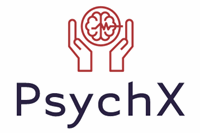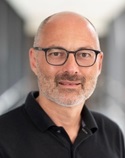ECNP-PsychX talks

Bringing you the latest science in psychiatry
About PsychX and ECNP
We believe in making mental health expertise readily available to all. This vision led to the creation of PsychX, a platform to champion both emerging and established voices in the mental health domain. Every month, we host short online discussions spanning various mental health topics, making knowledge accessible without registration fees or hidden costs.
Join these high-relevance free online sessions, featuring monthly explorations into both clinical and experimental facets of psychiatry.
In 2022, PsychX and ECNP started collaborating. As from 2023, all PsychX talks were transferred to ECNP.
How to join the talks
Click on the button below to join:
Join here
or via the direct meeting link.
Meeting ID: 854 0080 8569
Passcode: PSYCHX
Upcoming talks
Mark your calendars for our lineup! We convene every first Monday of the month.
6 May 2024, 16.30-17.30 CEST (Central European Summer Time)
Bringing genetics into the clinic: are we there yet?
Sandra Sanchez-Roige, USA
 Precision psychiatry is advancing at a rapid pace, and the coming years are poised to be transformative. Decades of family and twin studies have established that psychiatric disorders have a familial and heritable component. With the advent of genome-wide association studies, our understanding of the genetic factors influencing psychiatric conditions has progressed tremendously; hundreds of locations in the human genome have been implicated in different aspects of disease, and the list is expanding each year. Many of these DNA risk variations are shared across psychiatric and even somatic conditions, and suggest new ways of defining and potentially treating psychiatric conditions. Suddenly, there may be a cause for optimism that genetic research may impact clinical arenas and have important implications for diagnosis and treatment. But this is only the tip of the iceberg. This talk will discuss recent advances in the field of psychiatric genetics, borrowing examples from the field of substance use disorders, and interrogate how far are we from realizing the promise of precision psychiatry.
Precision psychiatry is advancing at a rapid pace, and the coming years are poised to be transformative. Decades of family and twin studies have established that psychiatric disorders have a familial and heritable component. With the advent of genome-wide association studies, our understanding of the genetic factors influencing psychiatric conditions has progressed tremendously; hundreds of locations in the human genome have been implicated in different aspects of disease, and the list is expanding each year. Many of these DNA risk variations are shared across psychiatric and even somatic conditions, and suggest new ways of defining and potentially treating psychiatric conditions. Suddenly, there may be a cause for optimism that genetic research may impact clinical arenas and have important implications for diagnosis and treatment. But this is only the tip of the iceberg. This talk will discuss recent advances in the field of psychiatric genetics, borrowing examples from the field of substance use disorders, and interrogate how far are we from realizing the promise of precision psychiatry.
Dr. Sandra Sanchez-Roige is an associate professor at the department of psychiatry at the University of California San Diego, and the department of medicine, division of genetic medicine at Vanderbilt University Medical Center. Dr. Sanchez-Roige has 15 years of expertise in psychiatric genetics. Leveraging alliances forged across academic, industry and community partners, she aims to advance precision psychiatry using genetic, genomic, medical bioinformatic, and cross-species translational approaches.
3 June 2024, 16.30-17.30 CEST
Democratizing normative modeling for neuroimaging data
Sophia Frangou, USA
 In the last two decades, neuroimaging techniques have become essential tools for the study of the human brain. However, there is currently a lack of reference standards to accurately quantify individual differences in neuroimaging metrics across the human lifespan. The presentation will introduce a major advance in addressing aforementioned knowledge gaps related to brain morphometry. CentileBrain is web platform that enables the measurement of brain deviations using an international reference (>37,000 study participants aged 3-90 years, from more than 80 research sites).
In the last two decades, neuroimaging techniques have become essential tools for the study of the human brain. However, there is currently a lack of reference standards to accurately quantify individual differences in neuroimaging metrics across the human lifespan. The presentation will introduce a major advance in addressing aforementioned knowledge gaps related to brain morphometry. CentileBrain is web platform that enables the measurement of brain deviations using an international reference (>37,000 study participants aged 3-90 years, from more than 80 research sites).
Dr. Sophia Frangou serves as professor of psychiatry at the Icahn School of medicine and as chair in brain health and associate Dean for research for the faculty of medicine at the University of British Columbia. Her work focuses on elucidating the brain correlates of psychopathology and cognition across the lifespan in healthy individuals and persons with schizophrenia and bipolar disorder. Dr. Frangou has published over 300 articles and has received numerous awards including the 2019 Colvin Prize for outstanding achievement in mood disorders research from the brain and behavior research foundation and the 2020 Educator Award and the 2022 George N. Thompson Award, both from the society of biological psychiatry.
1 July 2024, 16.30-17.30 CEST (Central European Summer Time)
Less is more – a differentiated approach to antipsychotic medication in Soteria
Martin Voss, Germany
 Soteria (ancient Greek: healing, welfare, preservation, rescue) refers to an inpatient treatment approach for accompanying people in psychotic crises, in which so-called "milieu therapy" and close personal support ("being with") are at the center of the treatment. Because of its calming, relaxing and setting, Soteria can help to minimize doses of antipsychotic medication which in turn improves adherence and long term outcomes in first episode schizophrenia. The lecture provides an overview of the origin and development of the Soteria idea and uses the example of the Soteria Berlin at Charité University Hospital/St. Hedwig Hospital (Berlin, Germany) to show how such a concept can be established in the hospital and become part of standard psychiatric care.
Soteria (ancient Greek: healing, welfare, preservation, rescue) refers to an inpatient treatment approach for accompanying people in psychotic crises, in which so-called "milieu therapy" and close personal support ("being with") are at the center of the treatment. Because of its calming, relaxing and setting, Soteria can help to minimize doses of antipsychotic medication which in turn improves adherence and long term outcomes in first episode schizophrenia. The lecture provides an overview of the origin and development of the Soteria idea and uses the example of the Soteria Berlin at Charité University Hospital/St. Hedwig Hospital (Berlin, Germany) to show how such a concept can be established in the hospital and become part of standard psychiatric care.
Having studied medicine and philosophy in Aachen and Berlin; Martin's initial training in neurology was at Charité Berlin. A postdoctoral researcher at the institute of neurology, UCL, London, UK from 2003-2005. Training in psychiatry from 2006; he obtained the role of consultant psychiatrist at the department of psychiatry and psychotherapy, Charité University Medicine and St. Hedwig Hospital in Berlin, Germany. Martin Voss is the founder of Soteria Berlin (2013) where his roles span: clinical supervisor, psychotherapist (psychodynamic psychotherapy), Head of the research division ''Psychotic Disorders“. He is a lecturer in psychiatry (Charité Medical School) and an internationally recognized researcher (main research Interest: self-disorders in schizophrenia, sense of self-agency, embodiment, effects of architecture and design on mental disorders and well-being).
Date to be announced
Topic to be announced
Rene Kahn, USA

René Kahn is chair of psychiatry at the Icahn School of Medicine at Mount Sinai since 2017. After completing medical school in the Netherlands, he was trained as a psychiatrist and neurologist in Utrecht and Amsterdam. He subsequently completed his psychiatry residencies at Mount Sinai Hospital and then worked as chief of the psychiatry research unit at the Bronx VA. In 1993 he became chair of psychiatry at the University Hospital Utrecht, going on to lead the Brain Center Rudolf Magnus, which combines research in basic neuroscience, psychiatry and neurology. Kahn has published over 950 research papers with a web of science H index of 107. He has been continuously funded for over 25 years by NIMH, the EU, the Stanley Foundation, and other organisations. He has served on several neuroscience grant review boards. René Kahn received several honors, such as a Fulbright Scholarship, membership of the Royal Netherlands Academy of Arts and Sciences, the ECNP Neuropsychopharmacology Award, an honorary doctorate at Semmelweis University in Budapest, Hungary and the lifetime achievement award of the Netherlands Psychiatric Association. He was knighted in the Netherlands in 2018. He served as treasurer and vice-president of ECNP and as president of the Schizophrenia International Research Society. He is a fellow of the American College of Neuropsychopharmacology.
PsychX Programme Committee
Visit this page to find out about the PsychX Programme Committee and its members, goals, composition and time commitment.
Previous talks
View here previous PsychX talks.